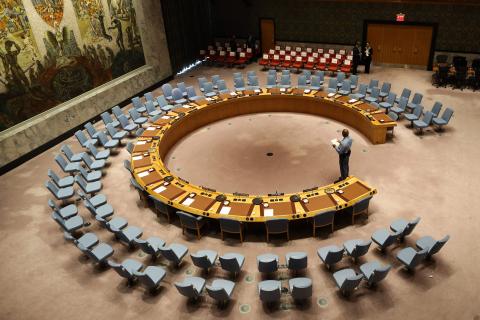Houthis Allocate Donations to War, Ignoring Millions of Hungry Citizens


Houthi leaders in Sanaa, al-Mahwit, Dhamar, and Amran governorates are forcing residents, including tribesmen, farmers, and merchants, to donate money and supplies to send them to the fronts and families of the group's militants.
Local and tribal sources in Sanaa and other regions told Asharq Al-Awsat that the group’s leaders and local officials held meetings with notables in villages and districts and forced them to collect donations for war, threatening to recruit the children of those who object.
A beekeeper from al-Mahwit, who asked to be referred to as Commander A., told Asharq al-Awsat that the group's supervisor in al-Khabt district forced him to donate 100 kilos of honey after he said he didn't have any cash to donate.
one of the local tribal elders in Saafan directorate about the reason why residents accept Houthi blackmail, he explained that many of them are small merchants or farmers and are forced to contribute in order to protect their children.
He indicated hundreds of poor families in the district are in need of help and support, but the insurgents do not care about their condition as much as they are concerned with collecting funds to defend the homeland as their leaders claim.
Houthis forced every village in Yarim and its environs, north of Ibb governorate, to equip 15 teenage students to join recruitment camps, or provide YR100,000 instead from each family.
Local sources told Asharq Al-Awsat that the group's regional administrators are now wealthy and own cars and homes from the money they claim they have been collecting for war.
Meanwhile, the official Houthi sources announced that the group managed to collect donations in Saada directorates and several directorates in Sanaa and in al-Mahwit, Hajjah, and Dhamar.
The group's media showed pictures of hundreds of millions of Yemeni riyals, along with other donations such as cows, sheep, honey, and clothing, claiming it would be distributed to the group's fighters on the frontlines.
Houthi militias insist on imposing a policy of levies and royalties, while they ignore thousands of hungry people in areas under their control.
Many Sanaa residents declared that despite their poverty and need, they did not receive any of the Zakat money.
The group's media reported that the militia leaders appointed at the Zakat Authority, distributed YR500 million about 10 days ago to the group's fighters and members in Naham district and the areas adjacent to the governorates of al-Jouf and Maarib.
A number of Sanaa residents informed Asharq Al-Awsat that the group's commanders give monthly salaries and food baskets to the group's followers and those who belong to their leader, al-Houthi.
a merchant was confident that all of the Zakat, taxes, customs, and other fees collected by the insurgents end up with the commanders who pay some for war and militants’ salaries of YR30 thousand.
The merchant, who requested not to be named, cited the recent celebration of Prophet Mohammed where the Houthi Zakat Authority spent YR15 billion riyals on activities and war effort without donating any to the poor and those in need.
Over the past months, UN agencies and relief international organizations accused Houthis of corruption.
Last year, head of the United Nations food agency accused Yemen’s Houthi rebels of diverting food from the country’s hungriest people and threatened to suspend food aid.
UN agencies threatened to cut aid in the group's control areas, and the United States warned it would cease aid to Houthi-held regions starting late March and accused the Houthis of obstructing humanitarian operations in Yemen.
For its part, the Yemeni government estimates that 30 percent of humanitarian aid goes to fund the war effort of the Houthi militia, rather than allocating it to support the millions of starving Yemenis who lack health care and basic services in the areas controlled by the group.
The Houthi group has looted between December 23, 2018 and December 2019, about 440 food aid and medical supplies trucks in Hodeidah, Ibb, and Sanaa, according to governmental reports.
The government also accuses the group of taking medical aid for polio and swine flu in a number of governorates and selling them to private hospitals.
The group closed the offices of UN and international organizations in Dhale, Dhamar, Ibb, and Sanaa. They also raided storage units of relief aid and confiscated UN supplies in Rima, Dhamar, and Dhale.
In recent statements, the Yemeni Minister of Local Administration Abdul Raqib Fatah accused Houthi militias of looting approximately 900 relief convoys during the past year, which were on the way to relief citizens in different regions.

Paris — The French humanitarian organization Acted announced that it has delivered cash assistance to nearly 89,000 people affected by displa…

Sana’a — Fuel and food imports into ports under the control of Yemen’s Houthi movement on the Red Sea have continued to fall for…

ADEN — Yemen Airways, the country’s national carrier, announced it will resume flights between Aden and Abu Dhabi beginning in January…